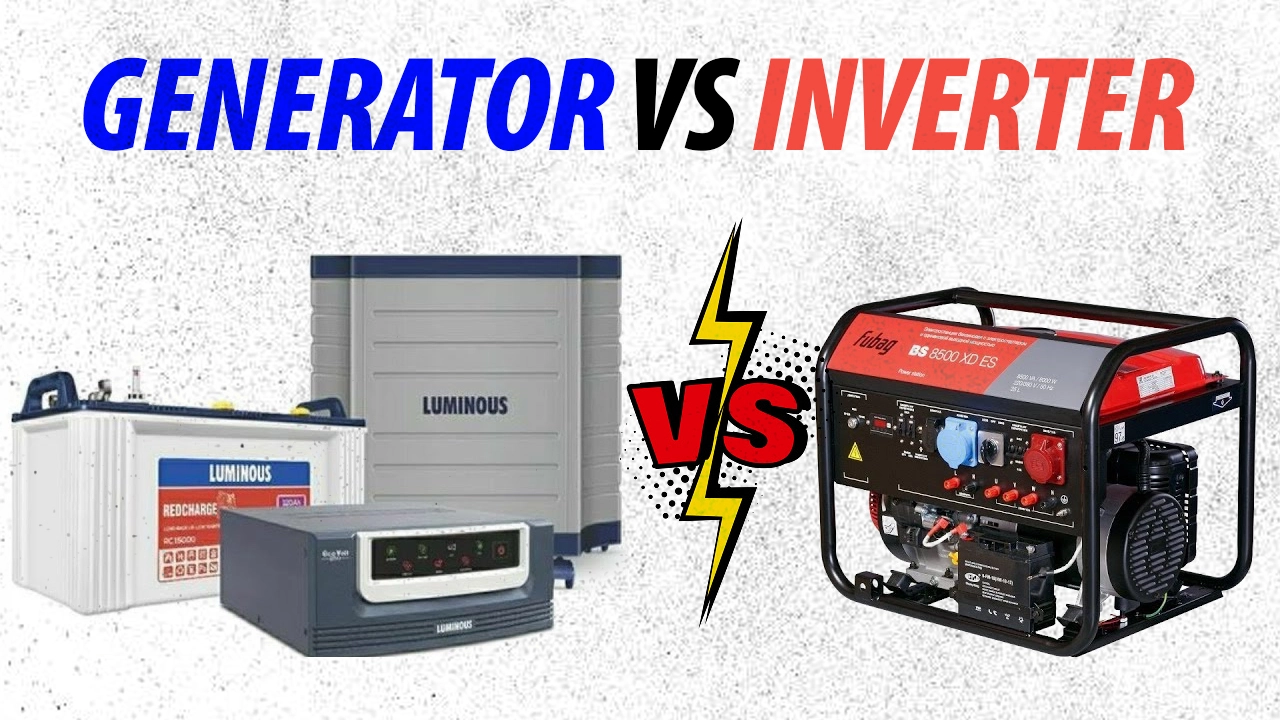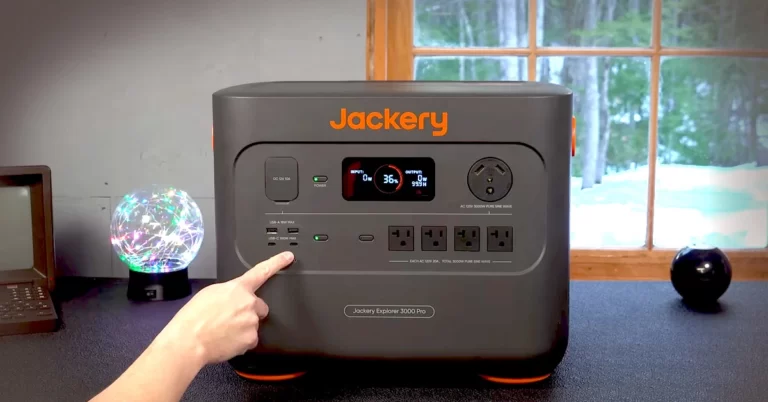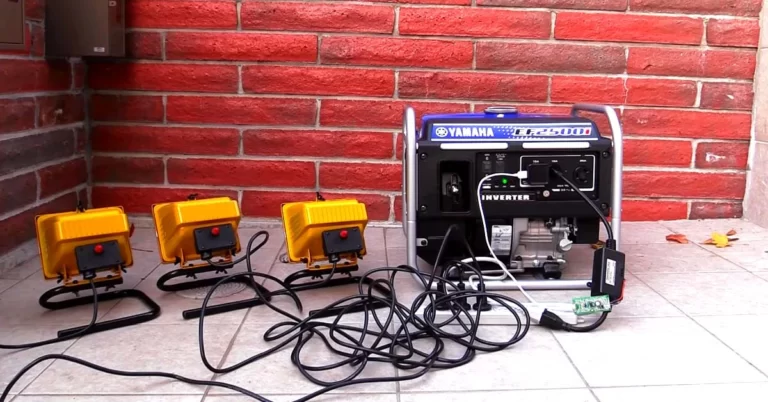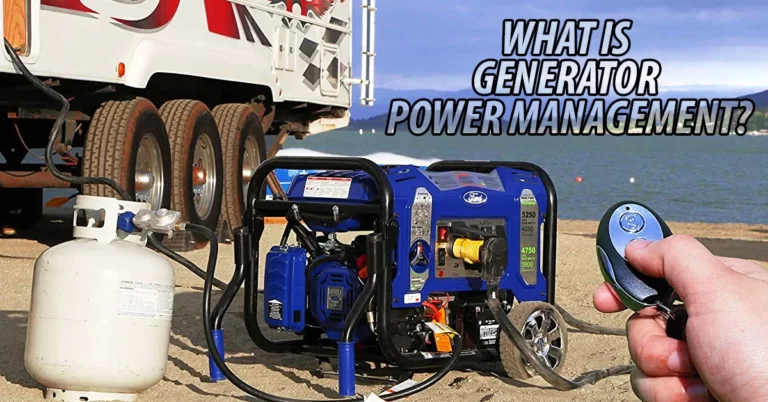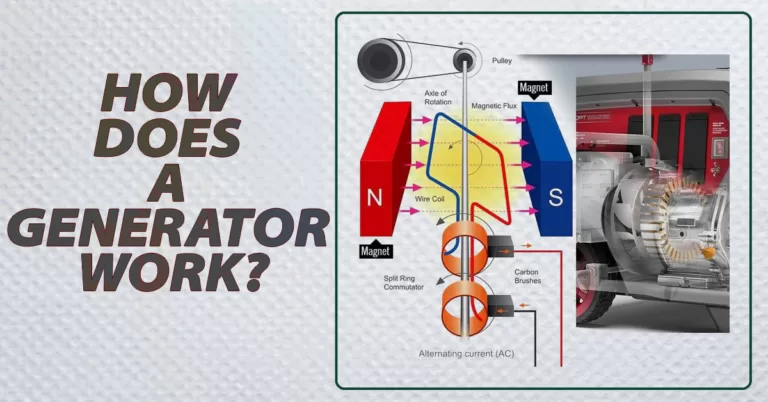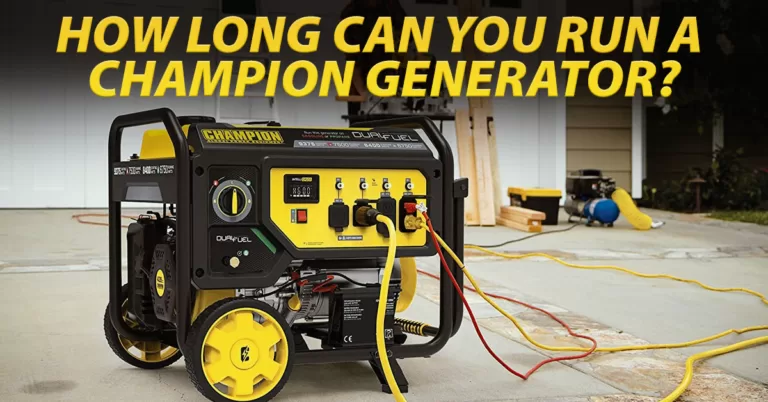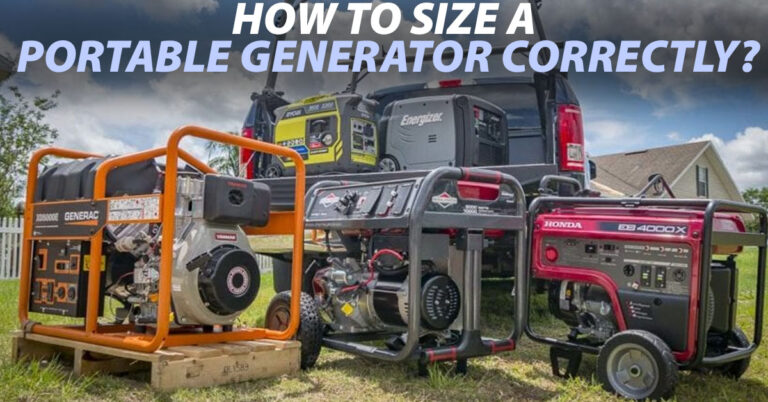Generator Vs Inverter: Which Do You Need
What differentiates generators from inverters, and which is the most appropriate for your particular application? When it comes to producing electrical power, generators and inverters are two common options, but they operate quite differently. This article will delve into the generator vs inverter topic and discuss the key differences between the two machines. We will also explore the mechanism of electrical current and how batteries generate energy, as well as the differences between AC and DC. Moreover, we will explain how an inverter works and its common uses. On the other hand, we will also look at how a generator works and its main applications.
What is the Mechanism of Electrical Current?
The mechanism behind electrical current is quite simple. By examining the atoms that make up a wire or conductor, it can be understood.
Imagine a wire made of metal atoms to understand how this operates. Every atom has a positively charged nucleus that is orbited by negatively charged electrons. When a voltage is supplied to a wire, an electric field forces the electrons inside the wire to travel. Electric current is the name given to this flow of electrons.
The atoms in the wire receive energy when the electrons moving through it collide with them. This energy causes the atoms to vibrate, which in turn creates heat. It explains why wires may grow heated when a big quantity of current passes through them.
Amperes, or amps for short, are units used to quantify the speed at which electrons move over a wire. The quantity of current that flows through a wire depends on the voltage supplied to it. According to Ohm’s law, the current flowing through a wire is inversely proportional to the resistance of the wire and directly proportional to the voltage applied to it. As long as the wire’s resistance doesn’t change, this means that if you apply a wire with a higher voltage, more current will flow through it.
The amount a substance resists the flow of electric current is measured as resistance. It is determined by the characteristics of the substance, including its temperature and conductivity. The Greek letter omega (Ω) designates the Ohm, the unit of resistance. A wire with a higher resistance will require a higher voltage to achieve the same amount of current flow as a wire with a lower resistance.
How do Batteries Generate Energy?
Batteries are a ubiquitous source of portable power, but how do they work? An electrochemical process, which produces energy by combining two distinct metals in a chemical solution called an electrolyte, lies at the core of every battery.
The battery has two ends, each containing a different kind of metal. When the metals react chemically with the electrolyte, they release electrons in different amounts. The metal that releases the most electrons generates a positive charge, while the other metal creates a negative charge.
When the two ends of the battery are connected by an electrical conductor, such as a wire, the excess electrons from the negative end flow through the wire to the positive end, where they combine with the metal ions and the electrolyte to create a chemical reaction that generates electricity.
This flow of electrons powers devices like flashlights, smartphones, and electric cars. The chemical compositions of various battery types vary. They may use different electrolytes and metals to generate electricity, but the basic principle remains the same.
How Does An Inverter Work?
The process of converting DC to AC involves the use of switches that send the current in different directions. The wave is then smoothed out and given a constant frequency using filters. To get the desired output, many filtering techniques can be used, depending on the type of inverter.
Applications Of Inverters
Inverters have become increasingly popular due to their small size and efficiency. Powering electronics in cars is one of the most popular applications for inverters. Most cars produce DC, which is not compatible with household outlets. However, using a compact inverter, electronic devices like cell phones, TVs, and other appliances can be powered using the car’s DC power source.
Larger inverters are used in construction sites to power tools and other heavy-duty machinery. Solar and wind energy generators also utilize inverters to transform the DC power they generate into usable AC power for households.
How Does a Generator Work?
An apparatus that converts mechanical energy into electricity is a generator. Electric generators can typically supply all the energy a residence need. Nuclear, coal or natural gas energy can all be used to power large electrical generators. During a power outage, a portable generator frequently burns petrol or diesel fuel to produce electricity for use on a building or construction site.
AC vs. DC Generators
Generators can be built to create either AC or DC electricity. However, AC is the most common type utilized in power plants and other smaller uses.
Transforming Voltage
Traditional generators only produce electricity for this purpose. A transformer must be used, for instance, if changing the electricity’s voltage is necessary.
The Main Differences Between a Generator and an Inverter
Suppose you’re in the market for a power supply solution. You may be curious about the distinctions between a generator and an inverter. While both options can provide electricity, they operate in very different ways. Here are the main differences between a generator and an inverter to help you decide which one is right for your needs.
Basics Of Generator Vs Inverter
An electrical device known as a generator transforms mechanical energy into electricity to supply backup power for essential household or business supplies during power outages. It is typically fueled by propane, gasoline, diesel, or natural gas and is commonly used for power distribution during emergencies.
An inverter, on the other hand, is a piece of technology that changes direct current from batteries, solar panels, or fuel cells to alternating current. It’s a portable gadget that hooks up to a battery or group of batteries to run typical home appliances.
Source Of Energy
The primary source of mechanical energy for a generator is an engine, which can be powered by propane, gasoline, diesel, or natural gas. Gasoline is the most common fuel choice for smaller generators, as it improves portability.
An inverter, on the other hand, converts stored energy into a regular current. Power from solar panels and wind turbines is transformed into AC mains power by a grid-connected inverter, making it more appropriate for long-distance transmission.
Noise Level
Generators are well-known for being noisy, with some models producing sound levels of over 100 decibels. In contrast, inverters are designed to be quiet, making them a great choice for use in residential areas or locations where noise pollution is a concern.
Energy Efficiency
Generators could be more efficient, with many models wasting up to 50% of the fuel they consume. Inverters, on the other hand, are highly efficient and can convert up to 90% of their stored energy into usable electricity.
Capacity Of Generator Vs Inverter
Generators are heavy-duty electrical devices capable of handling heavy loads and are available in large capacities. They are ideal for areas with frequent and prolonged power cuts and are better suited to extreme power spikes. They may require some time and effort to start, but they can keep running even in the presence of small power spikes.
Inverters, on the other hand, are moderate-capacity devices suitable for household use with fewer power surges. They come with auto-shut features that shut off power in the case of sudden surges to prevent damage to the unit. Moreover, they start automatically once the power goes out.
Power Output Stability
Generators can produce a lot of power, but their output is only sometimes stable. In contrast, inverters are designed to produce a consistent flow of electricity, which makes them ideal for powering sensitive electronic devices like computers or medical equipment.
Maintenance Of Generator Vs Inverter
Diesel or gasoline-powered engines are used in most engine-powered generators, which necessitates routine maintenance such as oil changes, distilled water changes, and lubricating oil changes. With the right care, petrol and diesel have a shelf life of 12 to 24 months. However, after applying a fuel-stabilizing agent, petrol can only be stored in large volumes for a few months. Additionally, generators frequently make a greater noise.
In contrast, inverters require little to no maintenance as they incorporate simple circuitry to convert DC to AC without any complexity.
Cost
Generators tend to be less expensive than inverters but require ongoing maintenance and fuel costs. Conversely, inverters are more expensive upfront but require less maintenance and don’t have ongoing fuel costs.
Which Is Better? Generator Or Inverter?
Are you looking for the best generator and inverter suppliers for your needs? Here are some tips on where to find them and how to choose the right one:
List Of Top Manufacturers
Start by researching the top generator and inverter manufacturers. Some of the well-known brands in the industry include Honda, Yamaha, Generac, Champion, Westinghouse, and Briggs & Stratton for generators. For inverters, popular brands are Honda, Yamaha, WEN, Champion, and Firman. These producers have a long history in the field and a solid reputation for creating high-end goods that are trustworthy and long-lasting.
Check Online
Online marketplaces like Amazon, Home Depot, and Lowes have various options for generators and inverters. To learn more about the reliability and quality of the product, read user reviews. Make sure to check the seller’s rating and reviews before making a purchase.
Local Dealers
You can also check with local dealers and suppliers for generators and inverters. To see the products in person, go to their locations and ask the staff for suggestions based on your needs. Local dealers may also offer repair and maintenance services, which is beneficial if you need to service your device in the future.
Tips For Selecting The Best Supplier
Look for a supplier that offers a wide range of products, has a good reputation, and has been in business for many years. Verify if they have a customer service team on hand to assist you with any queries or worries. Verify whether they provide guarantees or warranties for their products.
Comparing And Choosing
When comparing suppliers, consider product quality, pricing, delivery time, and customer service. Don’t base your decision solely on price; sometimes, paying more for a higher-quality product can save you money in the long run.
FAQs
-
Which device is better for powering sensitive electronic equipment?
An inverter is better for powering sensitive electronic equipment because it produces a stable, clean sine wave output that is less likely to cause damage or interference.
-
Which device is better for providing backup power during a blackout?
A generator is better for providing backup power during a blackout because it can produce a larger amount of power for a longer period.
-
How do I decide which device to choose for my specific needs?
You should consider factors such as the type and amount of power you need, your budget, and the noise level and portability of the device. Consult with a professional if you need clarification on which device is best for your specific needs.
-
Can I use an inverter and a generator together?
Yes, you can use an inverter with a generator. Many people use them together to get the best of both worlds. The generator provides the power source, while the inverter helps to stabilize the voltage and provide cleaner power for sensitive electronics.
-
Can an inverter replace a generator?
It depends on your specific needs. If you need a large amount of power for extended periods, a generator may be a better option. However, suppose you only need to power small electronics and want a more portable and quieter option. In that case, an inverter may be a good choice.
-
How long can an inverter or generator operate?
The length of time a generator or inverter can run depends on factors such as the fuel source, the size of the tank, and the power load. Inverters often only have small fuel tanks and can only run for a few hours before needing to be refilled. Still, generators typically have larger fuel tanks and can run for extended periods.
-
Are generators or inverters better for camping?
Inverters are generally better for camping because they are quieter and more portable. However, a generator can be required if you need to power larger appliances or pieces of equipment.

